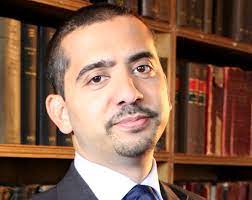Doesn't calling for an Intifada essentially mean advocating for violence and terrorism?
Expert answers from Pro-Palestinian voices
Answers (1)
Expert perspectives from Pro-Palestinian voices
In this video, Mehdi Hasan says:
In 2011 in the Arab Spring, the Tunisians rose up peacefully against their dictator Ben Ali and the Egyptians rose up in Tahrir Square against Mubarak. We supported that in the West and those were referred to, in the Arabic press, as Intifada. In fact, we can go back to the uprising that we supported, Warsaw Ghetto which was by Jews standing up against the Nazis; Do you know how the US Holocaust Memorial Museum describes the Warsaw Ghetto on its Arabic page? It calls it the Warsaw Intifada, so we're not calling the Jews in Poland who stood up against the Nazis as terrorists. So no, I don't believe that Intifada in itself is a terroristic or violent phrase
The first Intifada was largely nonviolent for the first year. Palestinians were killed at a rate of 27 times the number of Israelis that were killed. Yitzhak Rabin, do you remember Rabin, the Nobel Peace Prize winner? he said break their bones the violence came largely from the Israeli side in the first Intifada. So just to be clear that's what it means: Uprising. These students are not calling for violence. At Colombia University in New York, the police arrested 108 students many of them are Jewish. Let's talk about Jewish students. I've actually spoken to Jewish students and to Jewish professors. Columbia's Jewish professors have come out to condemn media coverage of what's going on and say this isn't anti-semitic. The Jewish professors said that these protests are not violent, they're not anti-semitic. My New Media Company, Zateo went and asked a Jewish student on campus who's part of these protests to write a piece for us and he did and he said the real threat is coming not from Palestinian protesters but from the police who were assaulting and arresting Jewish students on campus.
